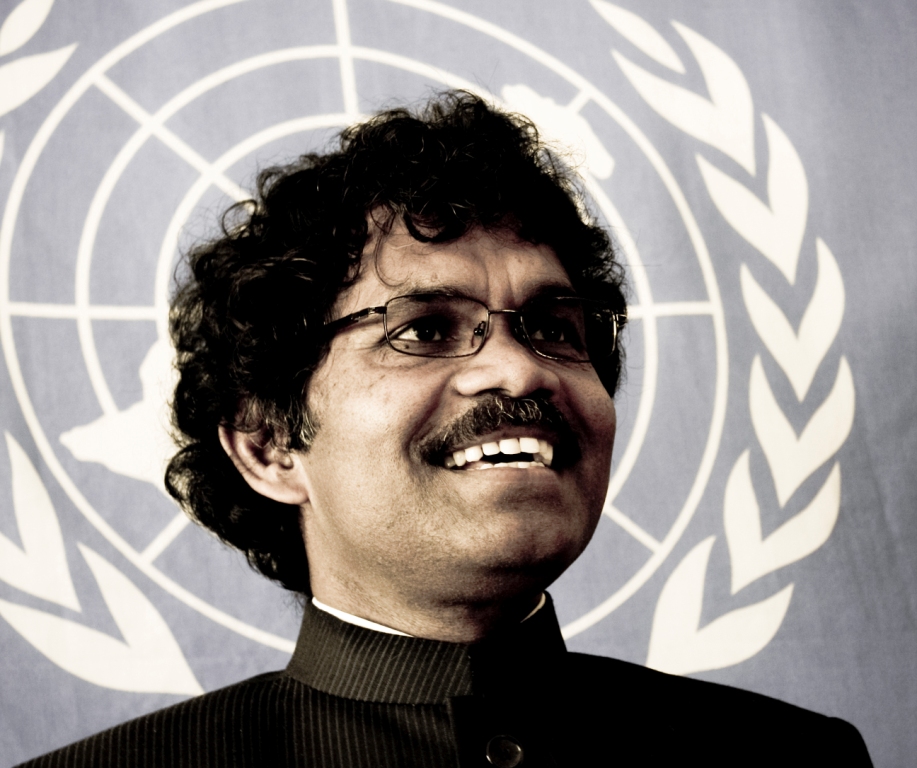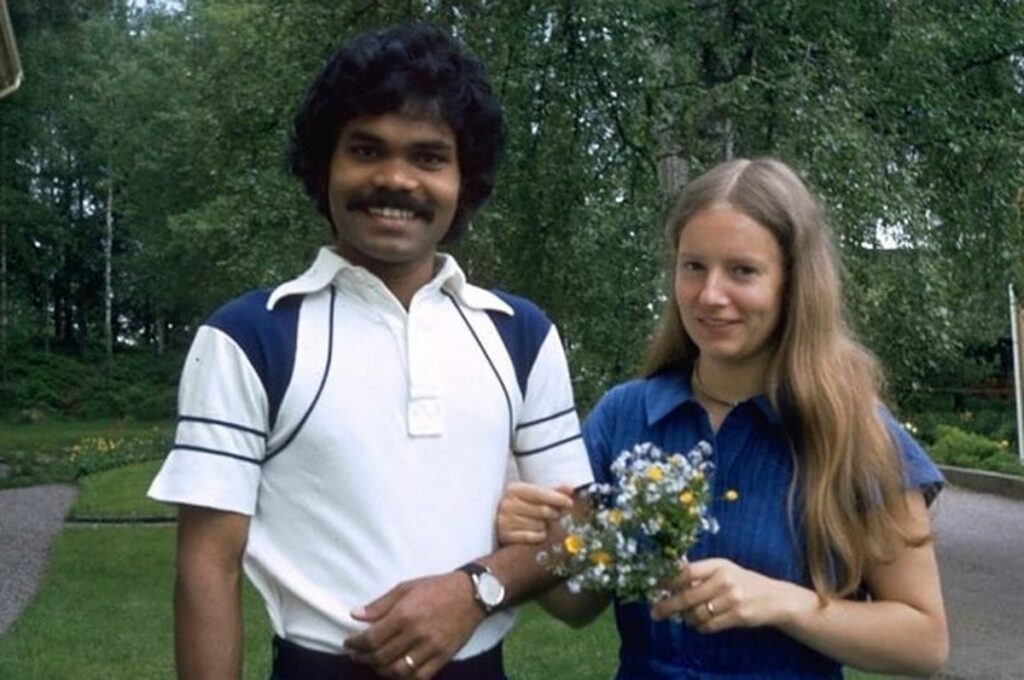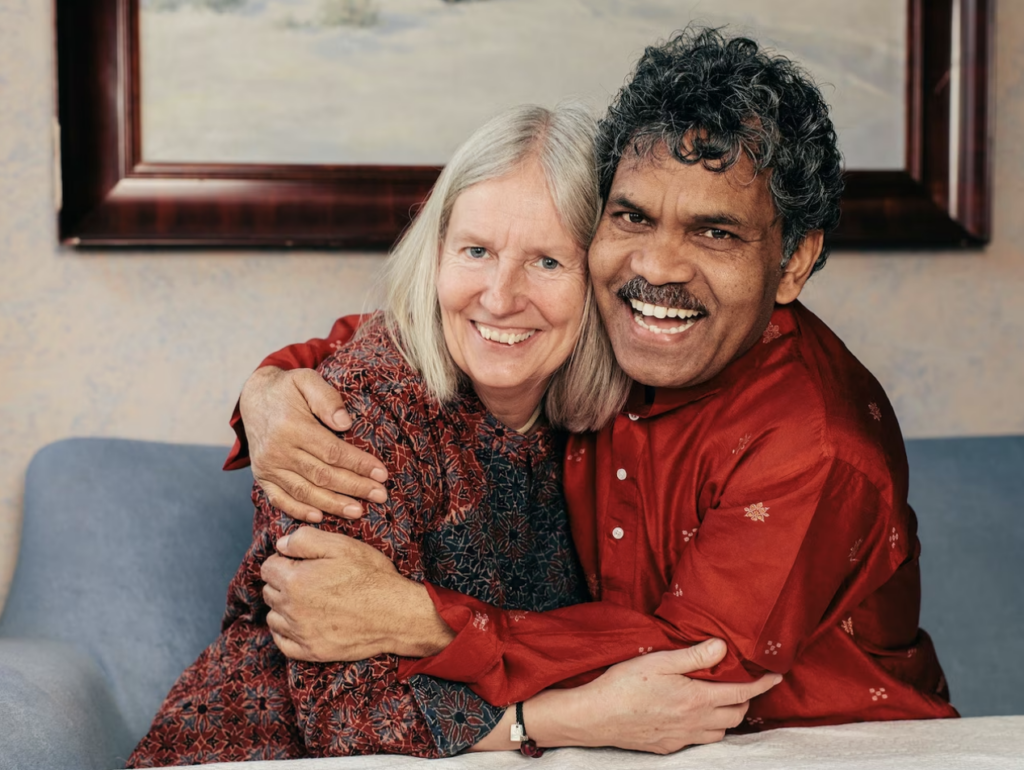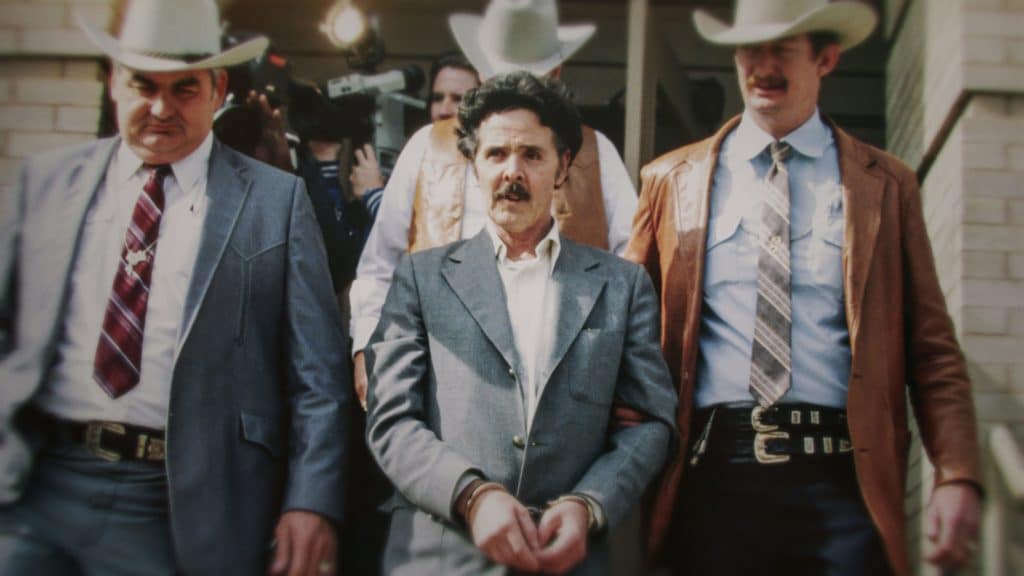Pradyumna Kumar Mahanandia is an artist best known for his epic love story. In 1977, he traveled over seven thousand miles from India to Sweden to reunite with his wife – and he covered most of that distance on a second-hand bicycle.
“Everything you are looking for, really is inside you. Your inner vision has a magnetic quality that draws everything you need closer to you. Remember your life and experiences are driven by the invisible wheels of love.”
– P.K. Mahanandia

Born Lucky
Mahanandia was born in the Odia-speaking village of Kandhapada in 1949. He grew up in that small village between the river and the mountains in the area that inspired The Jungle Book.
When he was born, the village astrologer told his parents that he would work with colors and art. What’s more, he would not have an arranged marriage. He was destined for a love match with a woman from a faraway land. She would be a landowner and a musician, born under the sign of the bull.
This prophecy must have been astonishing to his family, who had all been born into extreme hardship. As Dalit people, they carried centuries of generational trauma.
Untouchable
The Mahanandia family belonged to India’s Dalit caste, commonly known as untouchables. The Sanskrit word dalita means ‘broken’ or ‘scattered’.
During the Maratha Empire, which ended in 1818, many Dalit peoples were driven from their lands. Many others were poisoned, their bodies buried beneath large buildings. Under the rule of Baji Rao at the end of the Maratha Empire, Dalit people were often beheaded or ritualistically sacrificed. They were forbidden from learning how to read or write.
The preexisting caste system in India was intensified by British rule, which lasted from 1857 to 1947. The Criminal Tribes Act of 1871 branded certain communities as criminals by birth. Their movement was restricted, as was their interaction with members of other social groups.
To this day, marriage between members of different castes is rare. Discrimination in urban areas has declined, but segregation in rural areas is still common. Dalits in many places have limited access to schools, restaurants, temples, and even water sources.

When Mahanandia was a child in rural India, practices around untouchables were still very much in effect.
He was permitted to attend the local school but forced to sit either at the very back of the classroom or outside. If his classmates accidentally brushed him in passing, they would hurry to wash themselves. Other boys threw stones at him if he walked too close to the village temple. Local priests told the villagers that families like his sullied everything that was pure and holy.
In spite of these hardships, Mahanandia graduated high school and was accepted to art school. He had to drop out due to lack of funds but eventually matriculated to the College of Art in New Delhi.
Delhi
He had been promised a scholarship when he moved to Delhi but never received it, and so he ended up sleeping on the streets in order to stay there and continue his education.
Mahanandia often painted on the street. This was not permitted, and local police would take him down to the station. Those nights were a welcome respite for the starving artist, who was given food to eat and a safe place to sleep.
One day, he met the Russian astronaut Valentina Tereshkova and presented her with a quickly sketched portrait. She invited him to an event, where he painted ten portraits and was featured on television. He also painted the portrait of India’s only female prime minister, Indira Gandhi.
Overnight, he became famous in Delhi. He was granted permission to paint in the central square.

In December 1975, Charlotte Von Schedvin traveled from Sweden to India. She drove there in a VW bus with three friends. When she saw Mahanandia painting, she was immediately drawn to him.
She sat for her portrait four days in a row because Mahanandia, instantly smitten, felt that he didn’t do her justice the first time. Those beautiful blue eyes made him so nervous that his hand was shaking.
On the second day, he asked her when she was born, whether she owned forested land, and whether she played music. When she answered each question in the affirmative, he knew that this was the woman that he was destined to marry.
“We were destined to meet,” he told her in broken English. “You will be my wife.”
From India to Sweden
Charlotte followed him back to his home village, where she met his family. She had always been drawn to the region, and says that she lived there in her past lives. The Muhanandia family gave her their blessing, and the couple was married according to tribal tradition.
The couple had only three weeks together before Charlotte went home. Mahanandia promised that he would follow, but he had no money for a plane ticket.
For eighteen months, they wrote to each other.
Finally, Mahanandia decided to take the leap. He sold everything he owned and bought a bicycle. He set out on his journey of five thousand miles, and kind souls helped him along the way. He exchanged drawings for money, food, and shelter.
He traveled through Pakistan, Afghanistan, Iran, and Turkey.
Afghanistan was calm and peaceful in 1977. Many people understood Hindi, but it became more difficult to communicate once he reached Iran. Still, he kept going.
“Again art came to my rescue,” Mahanandia recalled. “I think love is the universal language and people understand that.”
At times he rode in trucks. Mostly, though, he spent his days biking – over forty miles each day – and his nights sleeping under the stars.
He reached Europe in late May, over four months after starting out, and traveled from Austria to Sweden by train. The couple reunited and married under Swedish law.
P.K. Mahanandia and Charlotte Von Schedvin have two children together. For many years, he taught art and she taught music. Eventually, he became an art and culture advisor for the Swedish government
They’ve been married for nearly fifty years.

